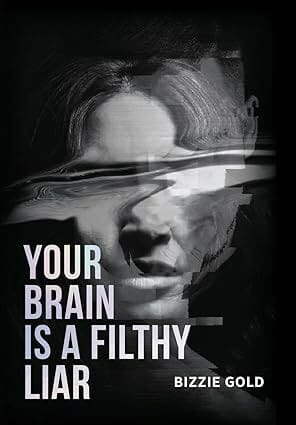Emotional Rewiring: How Self-Deception Affects Your Mental Health As You Keep Repeating Old Patterns
Discover Bizzie Gold's science-backed method for breaking self-deception patterns, offering actionable insights beyond traditional mental health advice

You know the script by heart. The same argument erupts with your partner about household responsibilities. The familiar knot in your stomach appears before a work presentation, despite years of experience. You promise yourself you’ll stop people-pleasing, then find yourself saying ‘yes’ to yet another favour you don’t want to do. Sound familiar? That quiet voice asking ‘what’s wrong with me?’ grows louder each time you fall back into patterns you swore you’d break.
According to mental health author Bizzie Gold, the answer isn’t that you lack willpower or need more motivation. The problem runs much deeper – and it lies in the sophisticated ways your brain has learned to deceive you.
The Hidden Architecture of Self-Deception
Gold’s book ‘Your Brain Is a Filthy Liar’ reached the top charts just two days after its global launch, striking a nerve with readers who recognise themselves in its pages.
Rather than offering another collection of mindset tips or surface-level strategies, Gold exposes what she calls the ‘hidden architecture of self-deception’ – the unconscious patterns that drive our most stubborn behaviours.
‘People don’t realise they’re lying to themselves – and that lie is what’s keeping them stuck,’ Gold explains. Her approach centres on Brain Pattern Mapping technology, which uses neuroscience to identify the predictive patterns our brains create, often before we’re consciously aware of them.
When Your Brain Becomes Your Worst Enemy
The science behind Gold’s work reveals something unsettling: self-deception operates largely outside conscious awareness, involving brain areas linked to working memory and cognitive control. These patterns, Gold argues, wire themselves into our neural networks during childhood and continue operating in the background as adults, sabotaging our best intentions.
Consider the woman who repeatedly attracts emotionally unavailable partners. Traditional therapy might focus on her ‘daddy issues’ or suggest she write in a gratitude journal. Gold’s approach looks different: what if her brain learned early on that love equals struggle, and now it unconsciously seeks out relationships that confirm this belief? The pattern feels familiar because it is familiar – her brain is simply following its established programming.
The Patterns We Don’t See
Gold identifies several common self-deception patterns that keep people trapped in cycles they can’t understand. There’s the overachiever who believes she must earn worthiness through constant productivity, never recognising that her ‘drive’ is actually anxiety in disguise. There’s the conflict-avoider who thinks she’s being kind by never expressing her needs, whilst her resentment slowly builds into explosive outbursts.
These aren’t character flaws or moral failings. Psychology research shows that self-deceptive patterns often stem from childhood experiences, operating as unconscious defense mechanisms that once helped us survive difficult situations but now limit our adult lives.
The challenge is that our brains are wired to protect us, not necessarily to help us thrive. They’ll choose the familiar discomfort over the unknown possibility of change every time.
Why Traditional Mental Health Falls Short
Gold’s critique of mainstream mental health approaches cuts to the bone. Whilst traditional therapy focuses on symptom management – teaching coping strategies for anxiety or communication techniques for relationships – it often misses the underlying patterns driving these symptoms in the first place.
‘This isn’t a book about fixing your mindset or finding motivation,’ Gold states. ‘It’s about exposing the subconscious patterns driving your behaviour so you can actually rewire them and get free.’
This perspective aligns with growing concerns in the mental health field. Recent research suggests that despite more people attending therapy than ever before, mental health metrics continue to worsen, indicating that traditional approaches may be addressing symptoms rather than root causes.
Breaking Free from Mental Loops
Gold’s framework doesn’t rely on willpower or positive thinking. Instead, it focuses on what she calls ‘strategic interruption’ – learning to recognise when your brain is running its old programmes and consciously choosing different responses. The process begins with identifying your specific patterns: What triggers them? How do they show up in your relationships, work or daily decisions?
For example, recognising that your need to control every detail of a project isn’t about being thorough – it’s your brain’s way of managing the anxiety it learned to associate with uncertainty. Once you see the pattern clearly, you can begin to interrupt it before it takes over.
This approach differs from the traditional focus on building confidence through positive thinking. Gold argues that trying to think your way out of deep patterns rarely works because you’re fighting against neural pathways that have been strengthened over years or decades.
Permission to Stop Fighting Yourself
Perhaps the most powerful aspect of Gold’s approach is the relief it offers to women who’ve spent years blaming themselves for not ‘getting better’ fast enough. Understanding self-deception patterns can provide permission to stop fighting yourself and start working with how your brain actually operates.
Therapeutic research confirms that recognising our role in perpetuating problematic patterns is crucial for change – but this recognition needs to come without the layer of shame that keeps us stuck in self-blame cycles.
The goal isn’t to eliminate all protective mechanisms or become perfectly self-aware. It’s about developing enough insight to notice when your brain is running old programmes that no longer serve you, and having practical tools to choose different responses.
Unlike traditional self-therapy approaches that focus on healing past wounds, Gold’s method concentrates on interrupting current patterns before they take hold.
Beyond Surface-Level Solutions
Gold’s work rejects the emotional fluff that characterises much of the wellness industry. Mental health research increasingly shows that surface-level mindset tips often fail because they don’t address the deeper cognitive and emotional patterns driving our behaviours.
Gold’s approach demands honesty about what’s actually happening in your mind, rather than what you think should be happening. It’s not about becoming a better person or healing your inner child – it’s about understanding the specific ways your brain distorts reality and learning to work with those tendencies rather than against them.
The question Gold poses to her readers is both simple and profound: what could change if you stopped trying to fix yourself at the surface level and started understanding the sophisticated rewiring happening underneath? For the growing number of women who feel stuck despite years of therapy or self-help, the answer might lie in finally seeing the patterns their brains have been hiding all along.
Rather than focusing on finding your voice after years of silence, Gold’s approach helps you understand why you lost it in the first place – and how to stop the pattern that keeps stealing it back.
Bizzie Gold is the founder of Break Method and creator of Brain Pattern Mapping technology. ‘Your Brain Is a Filthy Liar’ is available now.






